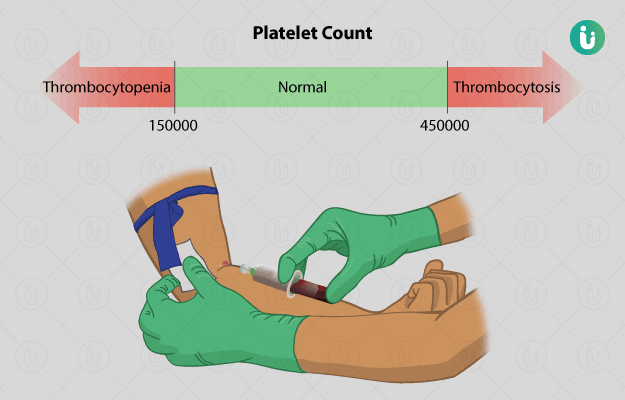What is a Platelet Count test?
A platelet count test is used to determine the number of platelets in blood. Platelets, also referred to as thrombocytes, are tiny and important blood cells involved in blood clotting and wound healing. In case of wounds, platelets control bleeding by adhering to the site of injury, forming clumps with other platelets and releasing chemicals that further promote the aggregation and clumping of platelets.
Platelets are produced in the bone marrow along with red blood cells and white blood cells. Bone marrow is the spongy centre inside bones. The life of platelets in the blood is about 8-10 days, and it is continually produced in a healthy individual to maintain normal levels. Platelet count is useful in diagnosing numerous disorders, which lead to reduced or increased levels of platelets.
































